I had a dream a couple of days before I left Hanoi. In the dream, I was leaving for the airport, but I wasn’t ready. I hadn’t finished packing, and I hadn’t finished showering (in fact, I still had conditioner in my hair). Plus I really had to pee. But it was time for me to check out of my hotel, and so I went down to the lobby to get a taxi, but at reception they said that there weren’t any taxis available, that I had to walk one block to another hotel. When I got to the second hotel, conditioner still in my hair, still needing to pee, they told me the same thing, that there weren’t any taxis and that I had to walk two more blocks to yet-another hotel. Clearly I wasn’t prepared to leave, but it didn’t seem like the rest of the world was prepared for me to leave either.
That was last week, back when I had a full week of travel ahead of me, back when I had another city to explore. Tomorrow, I leave for home.
What a strange sentence to type. Tomorrow, I leave for home. After thirteen months of travel and almost fifteen months out of my last apartment, I feel like I don’t even know what home means anymore. Is home where I have a job? Is home where I sleep? Is home where my loved ones are? Is home where my stuff is? Is home a place or a feeling?
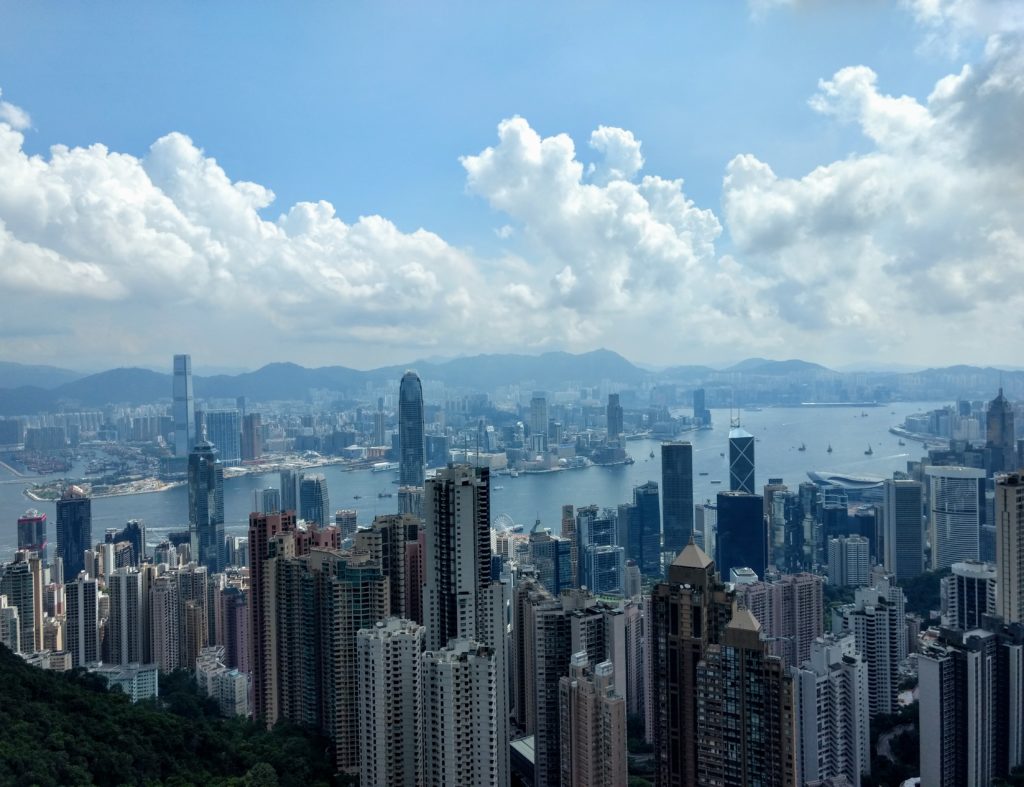
When you’ve been on the road for the long haul the notion of returning home becomes a vague abstraction. Home is out there, somewhere on the horizon. It’s a geographical place that future-you will return to but that present-you can ignore. However, sooner or later that distant future transforms into the present. When it finally arrives, whether you want it to or not, whether you’re ready for it or not, what happens next? What once felt like an idea has all of a sudden become reality.
Returning to one’s home base after traveling for any length of time can be challenging, complex, even confusing. There are sometimes tears involved and a lot of blank stares out of windows. We nomadic souls often feel we are our best selves, our truest selves when we travel, and returning home can feel like a crisis of identity.
These feelings intensify when the time away stretches across weeks and months. There are tangible challenges, for sure. For me, I’ve been using my office at work for storage. Pretty soon I’ll be going back to teaching my classes, holding office hours surrounded by kitchenware and bedding. I don’t have a place to live and am returning to one of the most expensive and competitive housing markets in the world. I don’t have basic belongings to the point that a few days ago I had to order toiletries and new underwear online because what I’ll have with me when I land in San Francisco is so sparse that I won’t even make it two days.
But these tangible problems, as is often the case, seem manageable. I can sort through my boxes. I can sleep in friends’ guest rooms (thank you, honeys). I can buy new underwear. I can go to open houses. It might not be easy, but that kind of stuff feels real.
The intangible challenges, on the other hand, seem more complicated because they’re less definable and more difficult to understand. Odd as it may sound, in many ways returning home feels less secure to me than my life on the road.
I’m not complaining about the time I’ve had traveling. It’s a privilege to be able to do what I’ve done. I realize I’m one of the luckiest people on the planet, having had this opportunity. I’m lucky I have friends to help me out when I get back to the US and that I have a steady income to help me find a place to live (literally) in the near future.
No, this feeling I’m having — call it ambivalence or fear or anxiety — is rooted more in the realization that at my core I have a nomadic soul and that I’m going back to where I started without anything real to return to. It’s a feeling that I simply don’t belong there. A sort of square peg, round hole kind of feeling (though in truth, I felt this way before I left; maybe now it’s more of a tridecagon trying to fit into an oval). It feels like home doesn’t fully exist for me, that I’ve changed over this past year and am now returning to the same old thing. Home in this regard isn’t just about having a physical space; it’s more an emotional sense of fitting in.
There are things I’m excited about. It’s exciting to think about finding a new place to live, to imagine what colors I might paint the walls, to imagine new sheets on a new bed. I’m excited to have more than four t-shirts (and three pairs of ratty underwear — seriously, it’s a problem). I’m excited to start running again. I’m excited to be able to buy natural peanut butter at the supermarket. To read real books instead of my Kindle. I’m excited to reconnect with friends.
It would be easy to start planning my next trip, my next grand exit (though I’m not going to lie; of course I’ve started planning my next trip, I’m always planning my next trip). The real challenge for someone like me is to embrace the moment of being grounded in one environment with familiar faces and a regular schedule.
I told a friend the other day that when I return I’m going to pretend that I’m a tourist in the Bay Area, as if this is my first time there. There’s so much I can discover in the known. My adventure doesn’t have to stop — just as my life doesn’t stop — when I get off the plane; it continues as long as I let it.
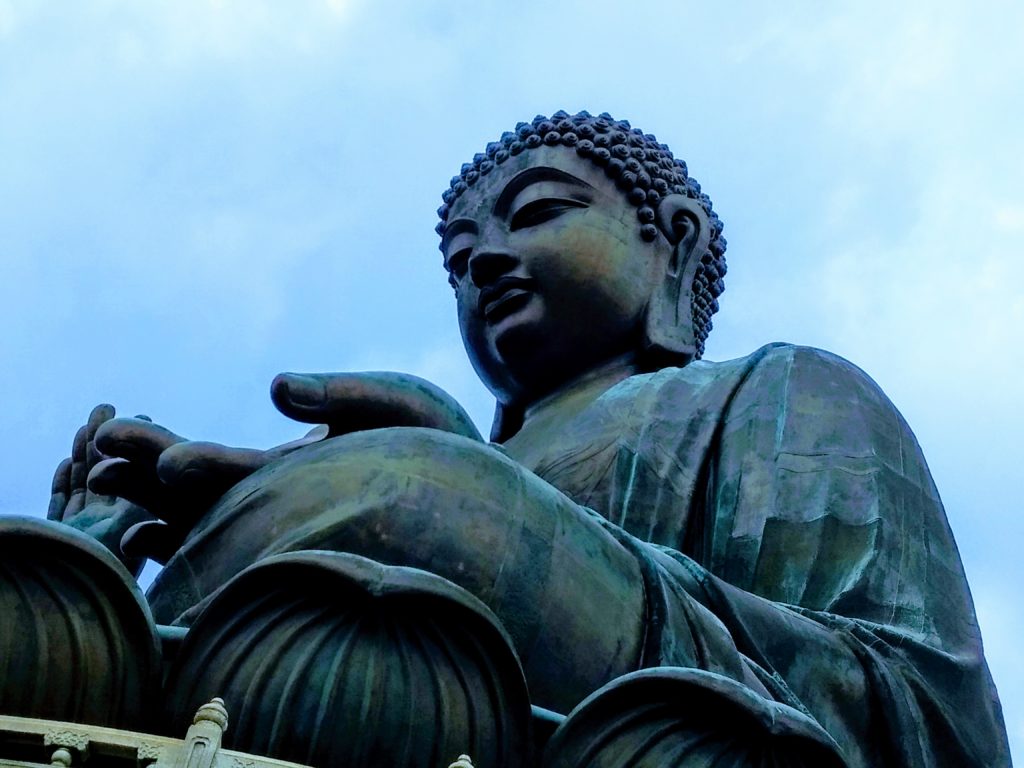
But as much as I know I’ll be able to discover new things in a familiar landscape, it’s a fact that I’m returning to a place known, and it’s probably not surprising to hear that my last couple of weeks on the road have been full of contemplation of the big questions many travelers grapple over. Travel, for me, is never simply about sightseeing (though I have been to some amazing sights). It’s not about ticking places off of some bucket list or taking photos to prove that I was there. It’s more about the experience of immersion into another landscape; and it’s about challenging myself in ways physically, emotionally, and intellectually.
These kinds of challenges motivate many nomadic souls. A lot of travelers use travel as a means to get unstuck, as if the act of movement from one place to the next can help us move to a better place emotionally as well. The problem, though, is where is the line between resolution and avoidance? And eventually, resolution or not, the traveler must return home. While she may have moved to a different space emotionally, the place she is returning to is essentially unchanged. Perhaps she needs to find a new job or a new place to live, but the day-to-day life of what she left behind, the ups and the downs, is still there, just X number of days, weeks, or months later.
Has she resolved whatever problem she left behind when she feels she’s mended those broken pieces of herself in a foreign land? Will she be able to sustain her newfound sense of self in her same-old environment? What, ultimately, has been the point of it all?
I was thinking about this the other day while having a pint at my favorite dive bar here in Hong Kong. I was struck by this feeling of utter frustration, that after all of my experiences abroad, I was returning to the same life I had left behind and that something, fundamentally, was missing.
I couldn’t articulate what it was: Had I been carrying a grand expectation that thirteen months of travel would somehow lead me to the life I should be living? Was I supposed to be having some sort of A-ha! moment, a grand epiphany that would magically reveal the meaning of it all, the moral to my story? Was this year just a waste of time?
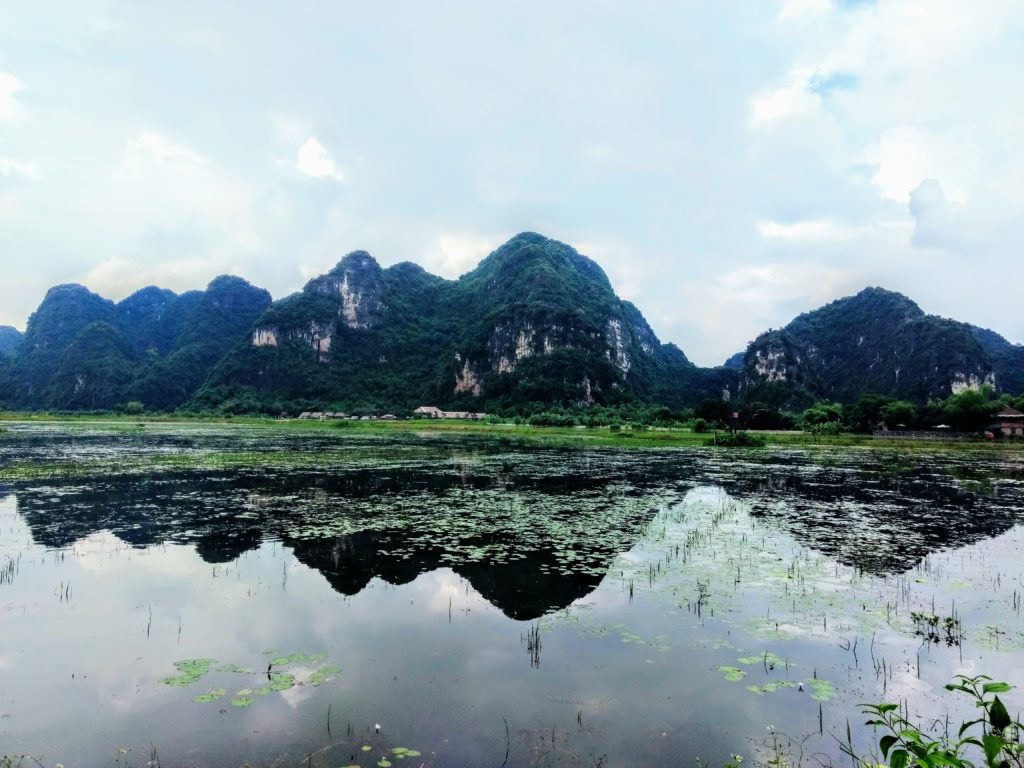
A couple of weeks ago, on my last day in Ninh Binh, Vietnam, I rented a moped. I rode to Bái Đính Temple and enjoyed exploring the temple complex on foot, finally ascending the uneven, steep stairs to the ancient temple tucked away in a mountainside cave. At the top, alone, inside the cave, it was cool, tranquil, surreal. It was sublime. Magical.
But more than anything that day, I was enjoying riding my moped, enjoying the rush of wind as I passed rice fields, the freshness of raindrops as they kissed my skin, the freedom of movement. When I got back to my hotel, I didn’t feel like stopping so I kept riding along the winding road, dodging potholes is the asphalt, passing families bathing in the water, passing children and dogs playing on the side of the dusty road.
After twenty minutes, the road hit a dead end at a bird sanctuary. It was too late in the day for me to go observe the birds, so there was nothing I could do but turn around and head back toward my hotel.
You won’t ever get this moment back, I reminded myself as I wove along the road back to my hotel. I passed rice fields, the sun low, rocky green reflected in the still waters. I smiled at the friendly man at the restaurant where I had eaten dinner two nights before. He smiled back at me.
I wasn’t disappointed. I was content.
It’s true that all roads eventually come to an end. Obsessing over this fact won’t change it. You can try riding back and forth, back and forth, but that’s just silly. That’s just avoiding the inevitable. There is only acceptance.
It makes me think that perhaps for someone like me home isn’t limited to just one place but rather expands to a series of places I’ve been to that I cherish. And it isn’t just these physical places but rather the places combined with the menagerie of people I’ve met and the experiences I’ve had. Home is everything and everyone I carry in my heart. Home is always with me. Home is here. Home is now.
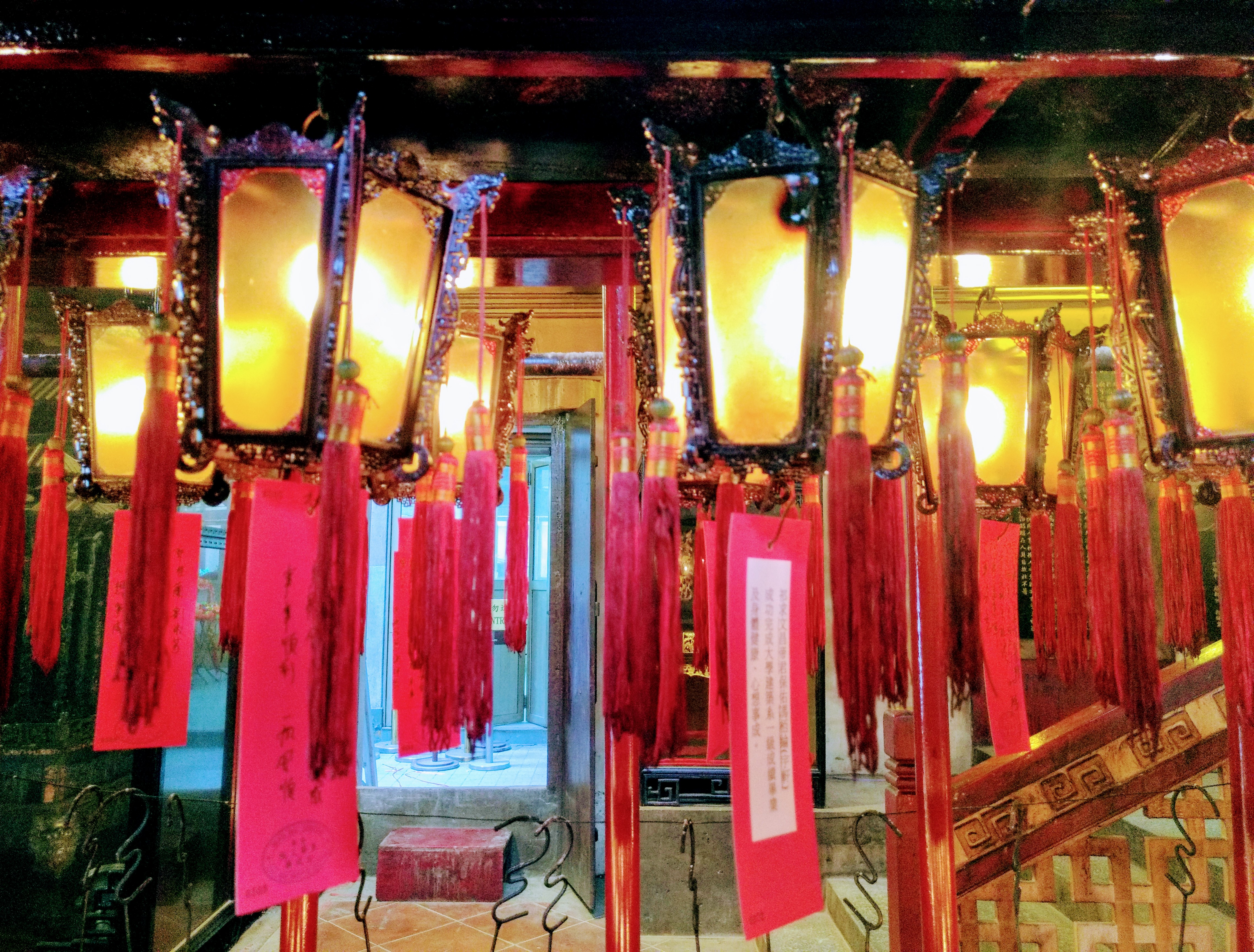



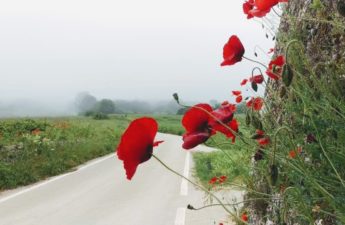
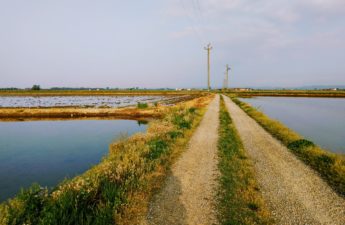
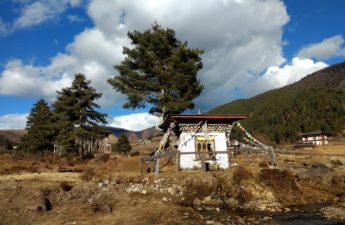
Your last paragraph touched me deeply. I loved the entire writing, but I zeroed in on that last one—I understand it; it’s how I think about my own life. And, I’m always busy planning my next trip—trips. Oh, that I’ve time left for so many . . .
Maybe my wanderlust is a genetic thing 🙂
And, of course, I’m hoping my next trip is with Y-O-U!!!
Yea! One chapter ends, another begins. I’ll be in the bay later this month…will hit you up!
Coolness — definitely get in touch. I’ll be couch surfing for awhile, but you’ve got my info!
Ah, so many complex feelings. You express them perfectly — and I can relate to them all. It may be cliche to say that travel is life-changing, but I do think it is, literally…every trip I take changes my life (permanently) in some way. And I think the nice thing that happens is that when you’re home and missing your travels, you suddenly notice that space inside you where the life change resides — and boom, home is a little more like away, so (conversely) you feel more at home there.
Or something. It makes more sense when I’m living it!
Thanks for this, Karen. I knew you’d get it (I thought of you often when writing this). Having a surreal morning, eating at the buffet here in my suburban airport hotel (so many carbs!) but I know that I’ll be fine. It’s just that issue of re-acclimating without losing that life-altering space. It’s a tough balance. I do like the idea of thinking about this familiar place as a place to be explored, a place where my traveler self can exist in my real-world self (because they shouldn’t be different selves, should they?)
It is a tough thing to explain; it really is something that must be lived.
xo
Have very much enjoyed *traveling* with you this past year. I know of a beautiful artist’s loft space for rent in West Oakland. Let me know if you’re interested & I’ll send you the details.
Thanks so much for the comment, Summer! And thanks for joining me on this journey — I think you’re a subscriber, so I can send you an email. I’m leaning more toward trying to buy (as I have a down payment ready to go) but a West Oakland artist’s loft is pretty-much my ideal living space, so if I need to rent for a few months, that’s an option 🙂
Thank you for posting all these entries; I have really enjoyed reading all of them. Hopefully we will see you on your next visit to northern Michigan. It isn’t as exotic as so many of the places that you have been traveling, but for us, it is home. We feel lucky to live in paradise.
Well, I LOVE Northern Michigan! It was originally a part of my travel plan until my surgery last summer 🙂
I’ll hopefully be visiting there either at Thanksgiving (though flight costs are ridiculous at the moment) or Spring Break. Either time of year would be fabulous!